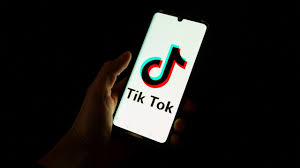
Introduction
TikTok has emerged as a dominant force in the social media landscape, rapidly gaining popularity among users of all ages worldwide. Launched in September 2016 by the Chinese company ByteDance, TikTok allows users to create, share, and discover short videos set to music or other audio snippets. The platform’s unique algorithm and user engagement features have not only changed how content is consumed but have also reshaped marketing strategies for brands, making it a topic of significant importance in today’s digital era.
Current Trends and Updates
As of 2023, TikTok boasts over 1 billion active users, making it one of the fastest-growing social networks globally. Recent reports indicate that the app is expected to reach a staggering 2 billion downloads, highlighting its widespread appeal. In the past year, TikTok has introduced several new features, including TikTok Shopping, which allows users to purchase products directly through the app. This integration is a game changer for e-commerce, enabling brands to seamlessly connect with consumers in an engaging format.
Furthermore, TikTok’s impact on popular culture is evident, with trends often spilling over into mainstream media. Viral challenges, dances, and hashtags have become a staple in social interactions, showcasing the platform’s ability to create and disseminate trends at lightning speed. The hashtag #fyp (For You Page) has gained traction as a way for creators to reach wider audiences, making content virality more accessible than ever.
The Marketing Revolution
For brands, TikTok offers a unique opportunity for targeted marketing. The platform’s algorithm promotes organic reach, allowing smaller brands to compete with larger corporations. Influencer marketing on TikTok has also flourished, with creators amassing millions of followers and leveraging their platforms for brand partnerships. Brands that embrace this marketing strategy often see significant returns on investment, particularly in younger demographics that are increasingly turning to TikTok for product recommendations and reviews.
Conclusion
The significance of TikTok extends beyond just social media; it represents a shift in how content is created, distributed, and consumed. As more businesses recognize its potential, TikTok is likely to continue evolving, introducing new features and opportunities for user engagement. Looking ahead, the platform may also face challenges regarding data privacy and regulatory scrutiny, particularly in regions like the US and Europe. However, TikTok’s trajectory shows no signs of slowing down, making it a key player in the future of digital marketing and social interaction.
You may also like

Khaby Lame: From TikTok Star to Global Icon

The Popularity Surge of Funny Videos on Social Media

GK Barry: The Rising Star in Digital Content Creation
SEARCH
LAST NEWS
- Remembering Wendy Richard: The Promise to Co-Star Natalie Cassidy
- How Did Anglian Water Achieve an ‘Essentials’ Rating for Mental Health Accessibility?
- Shai Hope Leads West Indies in T20 World Cup Clash Against South Africa
- What We Know About Weston McKennie: Future at Juventus and Past at Leeds
- What We Know About the Upcoming Live Nation Antitrust Trial